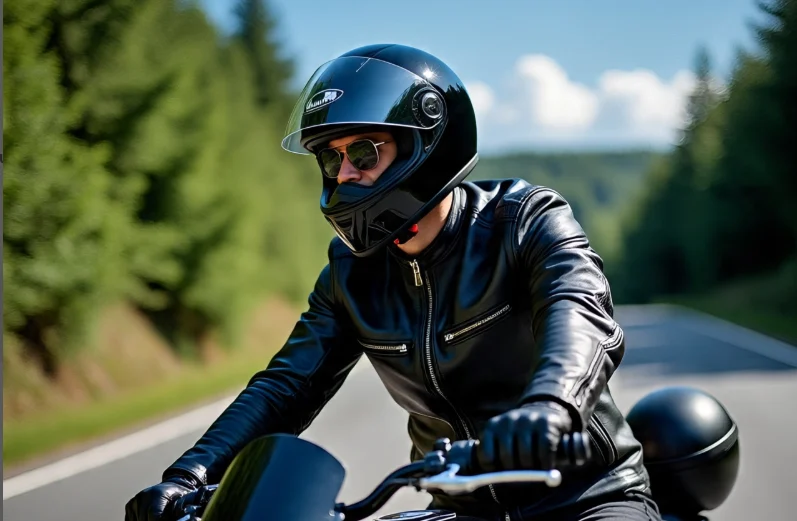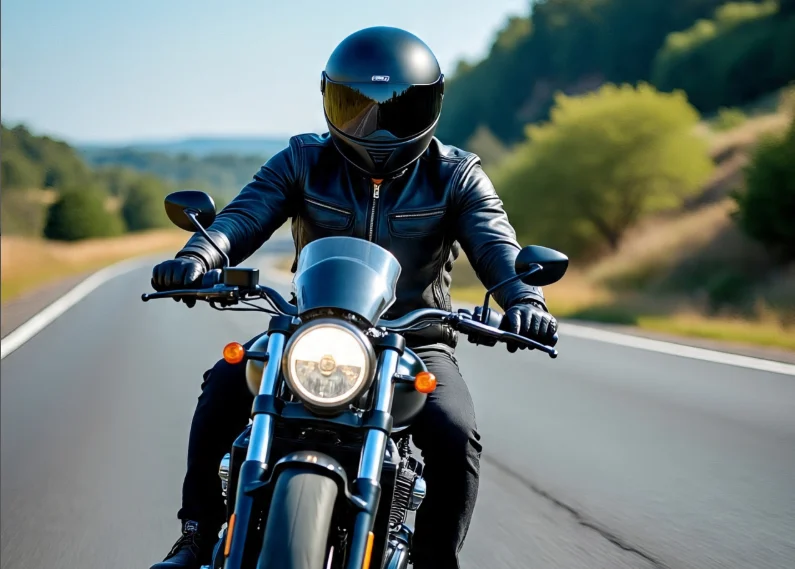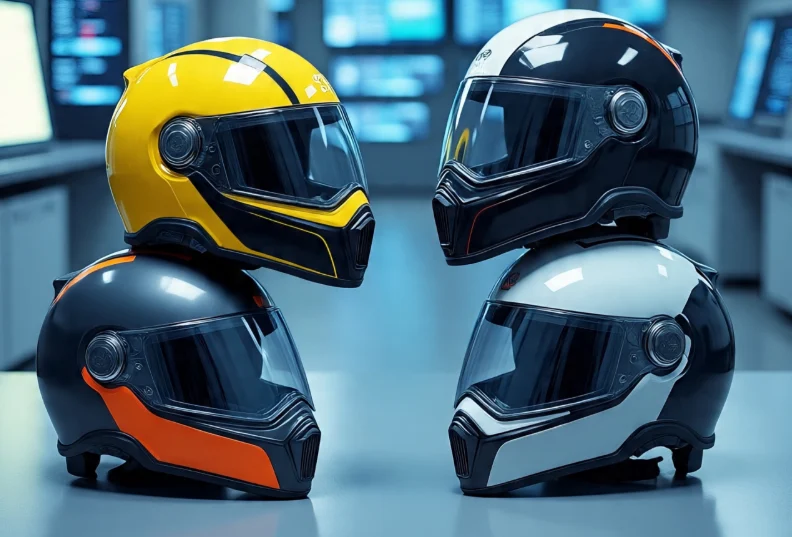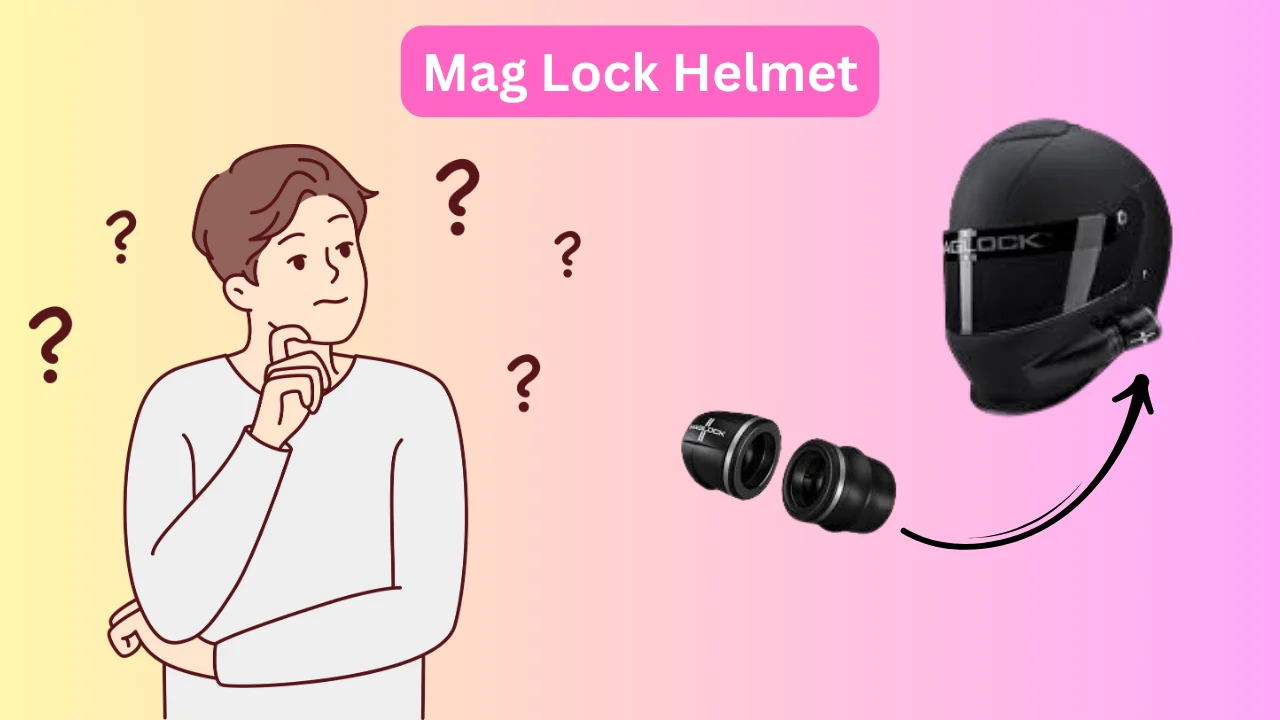When I first got my motorcycle, safety was my top concern. Like most new riders, I invested in proper riding gear, paid attention to road rules, and most importantly, spent days researching the right helmet. That’s when I discovered modular helmets. They looked cool, offered the flexibility I wanted, and felt more breathable. But one question kept popping up in my head, are modular helmets safe? Are they just as good as full-face helmets in a crash?
I decided to dig deep. I compared safety ratings, spoke with other bikers, and most importantly, tried one out for myself. Here’s everything I learned, with all the facts simplified, and how using a modular helmet actually made my rides safer and more enjoyable.
Want to give your helmet a custom look without breaking the bank? Check out this simple guide on how to paint a motorcycle helmet with spray paint and personalize your gear like a pro.
What Exactly Is a Modular Helmet?
Before we go into whether they’re safe or not, let me explain what a modular helmet is. A modular helmet looks almost like a full-face helmet, but the big difference is that you can lift up the front chin bar. So when you want more airflow or need to quickly talk to someone, you can flip it up and turn it into an open-face helmet.

This feature is especially useful for those of us who wear glasses, or ride in cities where you stop often for lights or food pickups. I loved being able to flip it up when I pulled into a gas station, or when I had to ask someone for directions without removing the whole helmet. Here’s a quick overview:
| Feature | Modular Helmet | Full-Face Helmet |
|---|---|---|
| Chin Bar | Flips up | Fixed |
| Safety | Good | Maximum |
| Weight | Slightly heavier | Lighter |
| Comfort | More airflow | Tighter fit |
| Best For | City, touring rides | Racing, highways |
Are Modular Helmets as Safe as Full-Face Helmets?
This was my biggest concern too. Full-face helmets are one solid piece, while modular ones are two, the main helmet and the movable chin bar. So the obvious fear is, if I crash, will the chin bar stay in place or break off?
Here’s what I found: Most modular helmets today are built to meet the same safety standards as full-face helmets. That includes DOT (Department of Transportation) and ECE certifications. These aren’t just stickers, they mean the helmet has been tested to handle high impact.
A study from the National Highway Traffic Safety Administration (NHTSA) looked into this and found that many modular helmets offer protection equal to that of full-face helmets. There was no huge difference in the energy absorption or head protection.
In fact, when I checked my own helmet’s label, the ILM 902 Modular Helmet, it met both DOT and FMVSS-218 standards. This gave me peace of mind that the helmet could take a real-world impact just like a standard full-face one.
Love riding with bold style? If you’re into wild designs, the Alien vs Predator motorcycle helmet is a must-see. See how it turns heads and adds fierce personality to your ride.
My Experience Using a Modular Helmet on Daily Rides
I started using my modular helmet for daily commutes and weekend rides, and I instantly noticed some practical benefits.
Ventilation and Comfort: In hot weather, my full-face helmet used to feel like a sauna. With the modular helmet, I could lift the chin bar at a red light and get some fresh air. There’s also more space around the nose and mouth, which made it easier to breathe.
Communication: Ever tried yelling through a full-face helmet? It’s hard. With my modular helmet, I could flip it up and talk to my pillion rider or take a call on my Bluetooth headset without taking the helmet off. It saved me a lot of hassle.
Putting It On: With my glasses, wearing a full-face helmet was always tricky. I had to remove them first and struggle to slide the helmet down. With the modular design, I just opened the chin section, wore the helmet, and then flipped it back. Super easy.
What About the Chin Bar? Does It Stay Locked?
A common worry bikers share is that the chin bar might come loose during a crash. That’s a valid fear, but only if you’re using a low-quality or uncertified helmet.
I made sure mine had a strong metal locking mechanism that clicks firmly into place. During a quick stop accident (I skidded on wet asphalt), my helmet held firm, no movement, no detachment. My face and jaw were fully protected, and I walked away with just a bruised knee.
Look for models with secure locking systems and make sure the helmet meets DOT or ECE standards. Don’t buy cheap or novelty modular helmets that don’t meet safety certifications. That’s where real danger lies.
Are Modular Helmets Good for Long Rides?
Absolutely. I’ve taken mine on road trips that lasted 3–4 hours, and here’s what I liked:
- No Neck Strain: It felt lighter than my old full-face helmet, which reduced pressure on my neck.
- Reduced Wind Noise: A well-designed modular helmet fits snugly and seals tightly, reducing wind turbulence.
- Flip-Up Feature at Stops: Long rides mean lots of pit stops. Instead of removing my helmet every time I wanted water or snacks, I just flipped it up. Quick and simple.
Who Should Use Modular Helmets?
Modular helmets are perfect for:

- Commuters who ride in stop-and-go city traffic
- Touring riders who go on long-distance journeys
- New bikers who want the flexibility of an open-face feel with full-face protection
- People who wear glasses or struggle to wear a standard helmet comfortably
Honestly, once I switched to a modular helmet, I didn’t go back. Ever wondered if there’s really a difference between car and motorcycle helmets? Read this quick breakdown on car helmet vs motorcycle helmet and learn which one is built for your kind of ride.
Are There Any Downsides?
I’d be lying if I said modular helmets are perfect for everyone.
- Weight: They’re usually a bit heavier than full-face helmets because of the hinge mechanism.
- Slightly More Expensive: You’re paying for the flexibility, so they can cost a little more.
- Not All Models are Equal: Some budget helmets may look good but fail to lock the chin bar properly.
But if you do your research and get a reliable brand like ILM, Shoei, or HJC, you’ll find that the benefits easily outweigh the small downsides.
Tips for Buying a Safe Modular Helmet
- Always check for DOT or ECE certification. If it doesn’t have it, walk away.
- Test the chin bar lock. It should feel solid and secure.
- Try it on before buying. Comfort is key.
- Look for removable padding. It helps you clean your helmet regularly.
- Choose dual visors. A clear visor for the day and a tinted one for sunlight works best.
My Final Thoughts: Are Modular Helmets Safe?
Yes, modular helmets are safe, as long as you buy a good one. They meet safety standards, absorb impact like full-face helmets, and bring extra flexibility that can make riding more enjoyable. So, are modular helmets safe?
Personally, switching to a modular helmet made my daily riding easier, cooler (literally), and more convenient. I didn’t feel like I had to trade safety for comfort, I got both.
So if you’re a biker trying to choose between a full-face and modular helmet, ask yourself this: do you want a helmet that adapts to your riding lifestyle while keeping you protected?
If yes, then a modular helmet is definitely worth considering. Don’t risk losing your helmet when you’re not around. Learn the smart and easy ways to lock your motorcycle helmet to your bike and keep it secure while you take a break.





